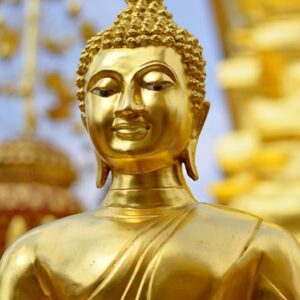Thailand is one of the most popular teaching abroad destinations, and it’s easy to see why. Teachers in Thailand have a lot of freedom to find their own perfect teaching job, with plenty of demand for teachers, opportunities for paid teaching jobs, and a variety of school options. Plus, the friendly people, breathtaking beaches, world-class recreation, and delectable Thai cuisine.
If you’re thinking about teaching in Thailand, this list will tell you what you need to know before you go!

1. Advices for inside the classroom
● Class sizes are large
The challenges in the classroom will vary depending on your chosen location and school, but overcrowded classes are common. Some teachers will be helped by a Thai teacher, but this is not always guaranteed.
● Buddhist Holidays
As a teacher in Thailand, you can expect to get more vacation time than you would in the United States. Songkran (Thai New Year), Coronation Day, Royal Ploughing Ceremony Day, Chulalongkorn Day, and Loy Krathong are just a few examples. Some of these holidays last several days, allowing you to travel and explore the country.
2. Types of schools
Consider researching various schools to see which one’s interest you. Schools differ in terms of working hours, workload, curriculum, materials provided, amenities, class size, and student age. You can teach in public or government schools, private schools, language schools, for corporations teaching business English, for families or individuals,or even in monasteries.

3. Cultural know-how
● Thailand Customs
The wai is the traditional form of greeting in Thai culture. You have only to clasp your hands at your chest, fingertips pointing up, and make a slight bow.
Thais regard the feet as the lowest and dirtiest part of the body. When sitting, keep your feet tucked to the side or behind you, away from people. It is impolite to point or touch your toes or feet.
The head is the most revered part of the body. It is considered impolite to touch someone’s head, especially someone of a higher age or rank.
Thais who live under the monarchy adore their King. He is the world’s longest-serving monarch, having reigned for over 68 years. They will tolerate no criticism directed at him or the royal family in general. Any insult directed at the King is illegal and may cause charges.
● Monk Protocol
Monks re held in high regard in Thai culture, which is predominantly Buddhist. At least one male from each family is expected to enter the monastic life for a period of time. Monks only may be men, and they are not allowed to touch women as part of their celibacy vow.

4. Life in Thailand for expats
● Air Conditioning and Humidity
Thailand is a fan of air conditioning. Larger malls, larger buses for travel, and many of the nicer private schools have air conditioning, which is probably on full blast. If you are easily chilled, bring a light sweater or jacket with you when teaching or traveling. It’s also a good idea to bring a travel umbrella.
● Toilets in Thailand
Western-style toilets are common in Bangkok and the more developed tourist areas of Thailand. Toilet paper is a different story. Thais typically clean themselves with a water spray gun. If that’s not your style, bring tissue paper and possibly hand sanitizer with you.
Now that you’ve mastered the fundamentals, you’re ready to teach in Thailand! For further information on how to start your journey. you can fill our assessment. It’s a beautiful country with friendly people, a rich culture, and plenty of job opportunities. You may never want to leave once you’ve been there. Your adventure is one click away!

